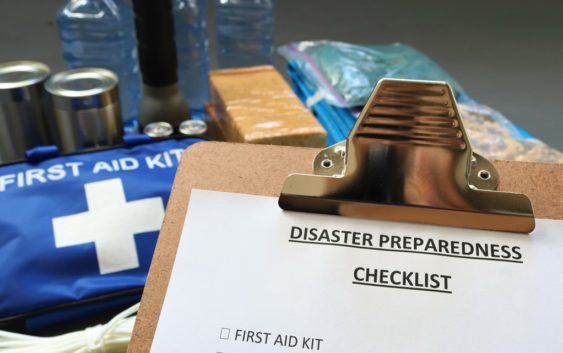- $37M drainage improvement project designed to combat flooding in NE Harris County
- Temporary bridges in Avery County at risk due to severe weather threat
- FEMA extends aid as Hurricane Helene recovery efforts surpass $360M
- Nearly every North Carolina wildfire caused by people, researchers say
- Weather IQ: How do wildfires ignite?
Ahead of the Atlantic Hurricane Season, here's how to stay prepared and weather aware

We’re less than a month away from the start of the Atlantic Hurricane Season, so use this week to prepare.
CHARLOTTE, N.C. — We’re less than a month away from the official start of the Atlantic Hurricane Season and after a record-breaking 2020 hurricane season, you want to make sure you and your family are prepared this year as we kick off National Hurricane Preparedness Week.
First, start thinking about an evacuation plan. Have a to-go bag with supplies like a first aid kit, flashlight, a battery-powered weather radio, extra chargers for your electronic devices, non-perishable food, and at least one gallon of water per person per day. Don’t forget about your pets and their needs as well.
Secondly, check in with your insurance agency. Standard homeowners insurance does not cover flooding. Whether you’re a homeowner or renter, you’ll need a separate policy for it.
John Wendel, Senior Communications Specialist for Charlotte-Mecklenburg Storm Water Services says don’t wait until the last minute.
“But be aware that most of the time, there’s a 30 day waiting period from when you purchase that flood insurance to when it becomes active,” Wendel said.
If you plan on staying home during a storm, make sure your home is in good standing. Trim the trees, secure loose outdoor items, and move your vehicle to a safe location.
Lastly, have a written plan.
Make a list of essential contacts, including family, friends, your doctor, and the vet, if you have a pet. Have at least one contact outside of your area.
Gather your important documents so that you can access them quickly and be sure to share your plan with a close friend or family member in the case of an emergency.
Remember, while coastal locations may be the most vulnerable tropical systems, inland flooding is the second leading cause of fatalities.
“More people die from flooding in their cars than flooding from any other occurrence, so be aware of that,” Wendel said. “Turn around, don’t drown.”
So, make your plan — hurricane season officially starts June 1 and runs through Nov. 30.
Contact Iisha Scott at iscott@wcnc.com and follow her on Facebook, Twitter and Instagram.